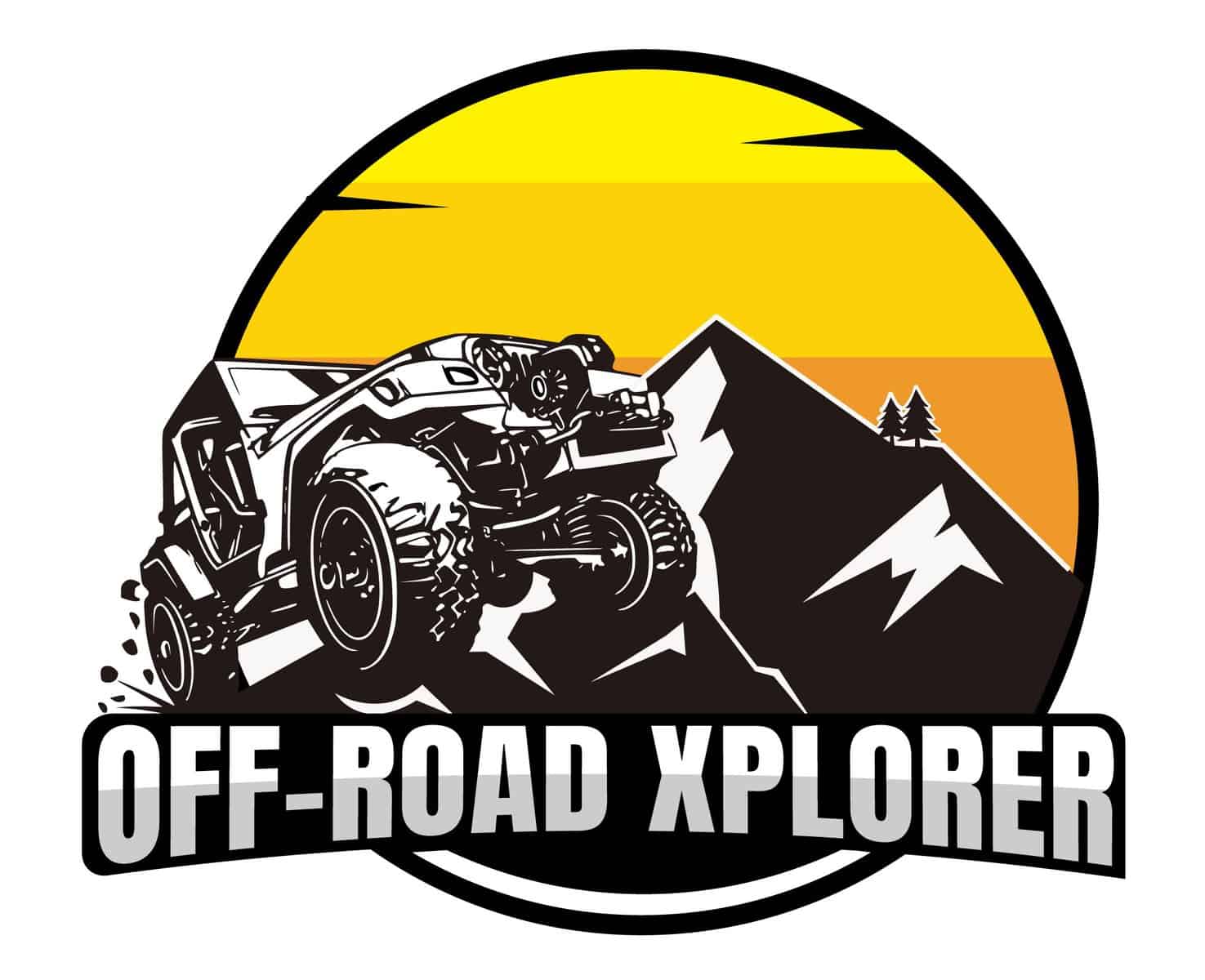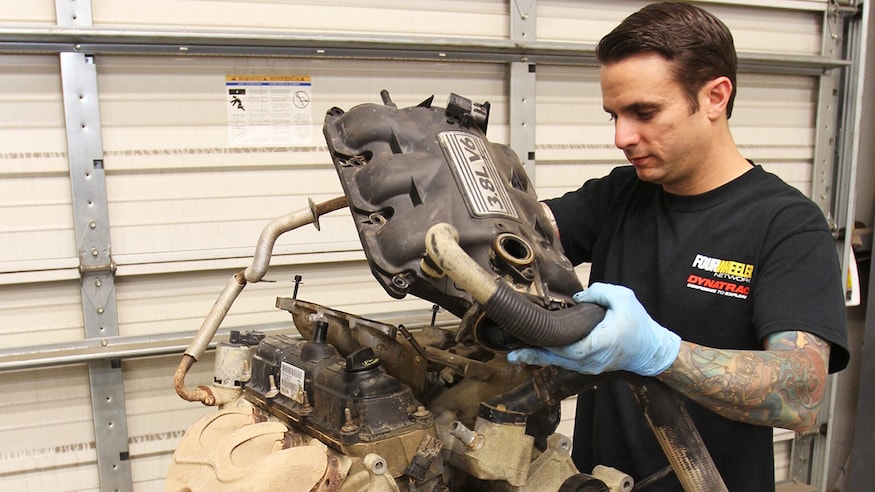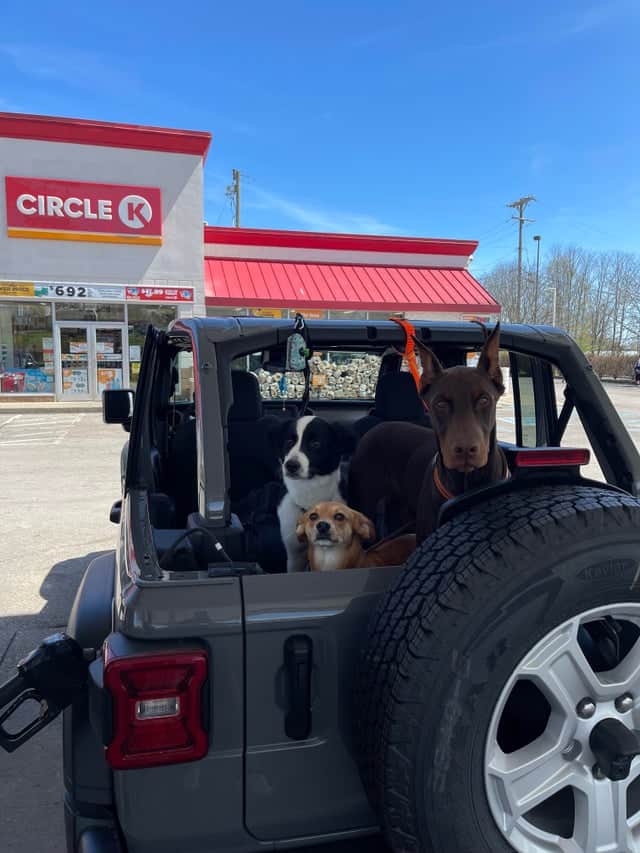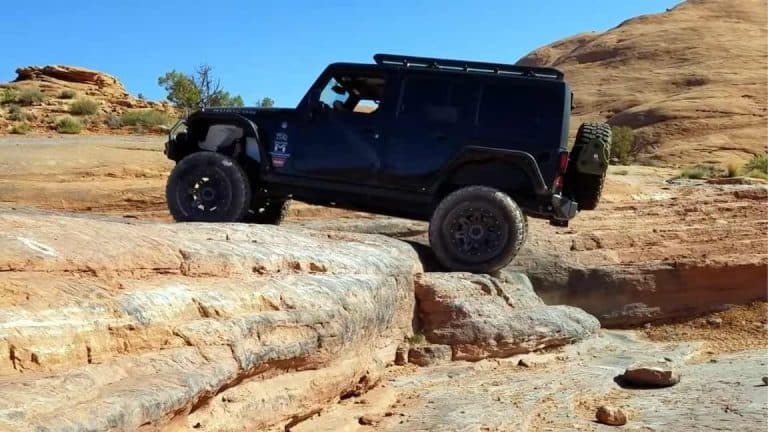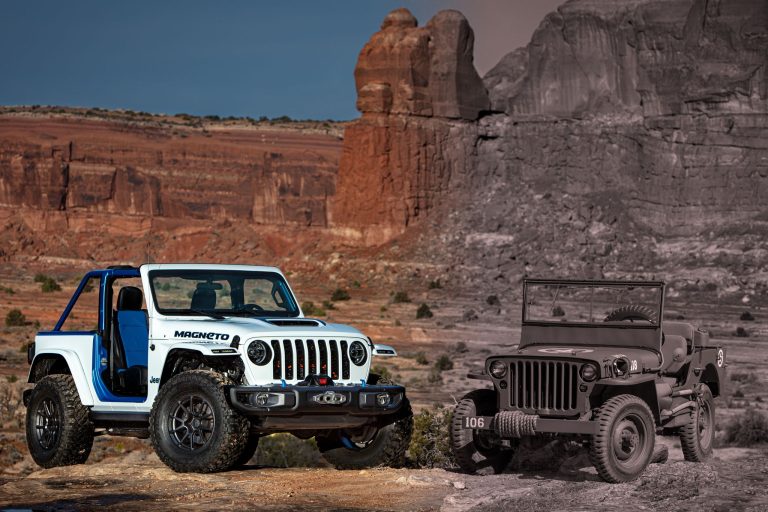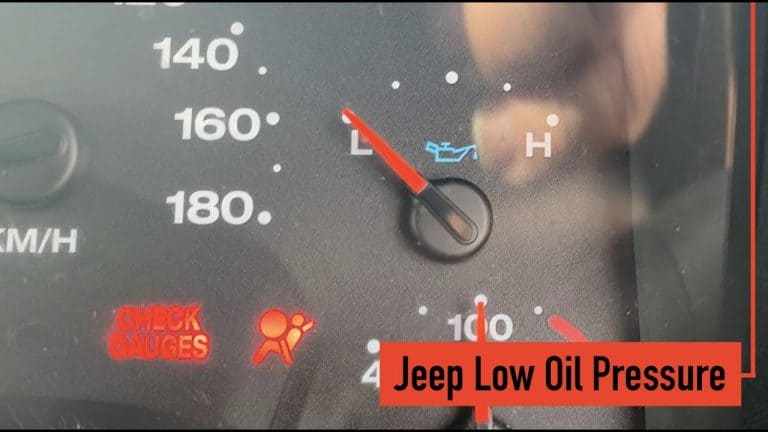Top 5 Jeep 3.8 Engine Problems & How to Fix Them
Jeep 3.8 engine problems include oil leaks and overheating. The 3.8l v6 engine was utilized in numerous jeep models, such as the wrangler and the grand cherokee.
Despite having a competent power output and being sturdy, specific setbacks plague this powerplant. Some 3. 8 engine owners have experienced oil leaks, specifically from the valve covers and oil pan gasket. Also, some drivers have noted that their jeeps are susceptible to overheating.
This can result from a broken water pump or radiator fan, or simply due to a lack of coolant. Additionally, some drivers also report power loss or misfires. Although some of these issues have simple solutions, it’s essential to address them quickly to prevent further harm to your jeep’s engine.

Credit: www.youtube.com
Problem 1: Overheating Of The Engine
Jeep wrangler is a reliable suv off-road capable vehicle, but there are some engine problems that you should be aware of to protect your ride. We will discuss one of the most common issues in the jeep 3. 8 engine, which is engine overheating.
Causes Of Engine Overheating
Engine overheating is a crucial problem in any vehicle, and it can cause severe damage if not addressed immediately. The jeep 3. 8 engine is no exception, and the following are some of the common reasons behind its overheating.
- Low coolant level: Coolant is responsible for regulating the engine temperature, and if there is a low amount of it, the engine will overheat. It is essential to check your coolant level frequently and refill it if needed.
- Faulty thermostat: The thermostat regulates the coolant flow in the engine. If it becomes damaged, it can cause the engine to overheat. A defective thermostat should be replaced as soon as possible.
- Clogged radiator: A clogged radiator can’t dissipate heat as effectively as a clean one, causing the engine to overheat. Regular maintenance of the radiator, such as flushing it, can prevent clogging.
- Leaky water pump: The water pump circulates coolant throughout the engine, and if it becomes leaky or damaged, it can cause overheating. A qualified mechanic should inspect the water pump if you suspect leaking.
Solutions To Overheating Problems
If you’re dealing with an overheating engine, there are a few things you can do to fix the issue. The following are some solutions to overheating problems in the jeep 3. 8 engine.
- Check coolant level: As mentioned earlier, low coolant levels can cause overheating. Make sure your coolant level is adequate and refill it if necessary.
- Replace thermostat: A damaged thermostat can cause engine overheating. Consider replacing it if it’s defective.
- Flush the radiator: Radiators tend to become clogged over time, and regular maintenance such as flushing can help prevent clogging and engine overheating.
- Check the water pump: If you suspect the water pump is the culprit behind your engine overheating, have a qualified mechanic inspect it and replace it if necessary.
Engine overheating is a severe issue that jeep 3. 8 engine owners should be aware of, as it can lead to severe engine damage. Low coolant levels, a faulty thermostat, clogged radiator, and a leaky water pump are some of the common causes of engine overheating.
Proper maintenance and quick action when you notice signs of engine overheating can go a long way in prolonging the life of your jeep 3. 8 engine.
Problem 2: Misfiring Of Engine
Reasons Behind Engine Misfire
Misfiring is one of the most common issues experienced by jeep 3. 8 engine owners. The engine’s cylinders fail to ignite and function in synchronization with the other cylinders, resulting in the engine running inefficiently. Here are some of the common reasons why your jeep’s 3.
8 engine is misfiring:
- Faulty spark plugs: A malfunctioning or worn-out spark plug can cause the engine’s cylinders to misfire, hampering the combustion process. Poor ignition leads to an imbalance in cylinder synchronization, which leads to engine misfiring.
- Bad ignition coils: The ignition coils are responsible for transmitting electric voltage to the spark plugs. If one or more coils are damaged or malfunctioning, it can result in engine misfire, loss of power, and engine stalling.
- Clogged fuel injectors: Fuel injectors clog over time due to dirt, debris, and contaminants, resulting in an insufficient supply of fuel to the engine’s cylinders. The fuel-air mixture ratio is heavily affected when fuel injectors clog, resulting in engine misfire and running problems.
Techniques To Fix Engine Misfire
If you’re experiencing engine misfire, here are a few things you can do to diagnose and fix the problem:
- Check your spark plugs: Inspect the spark plugs for wear, damage, or corrosion. Replace if necessary, and ensure that the spark plugs are gapped according to the manufacturer’s specifications.
- Inspect ignition coils: Check the ignition coils for signs of damage, such as cracking or burn marks. Replace the faulty ones, and ensure that the remaining ones are functioning correctly.
- Fuel system cleaning: Fuel system cleaning helps clean and unclog fuel injectors, increasing fuel efficiency and engine performance. It’s a good idea to clean your fuel system every 30,000 to 50,000 miles.
- Oxygen sensor replacement: The oxygen sensor is responsible for measuring the oxygen content in the jeep’s exhaust. A faulty oxygen sensor can cause engine misfire, stalling, and rough idle. It’s recommended to replace your oxygen sensors every 60,000 miles.
- Professional tune-up: If the above-mentioned techniques do not solve the problem, take your jeep to a professional mechanic for a complete engine tune-up. The mechanic will perform a thorough inspection of the engine and replace any damaged or worn-out parts.
Misfiring is a common problem experienced by jeep 3. 8 engine owners. Faulty spark plugs, bad ignition coils, and clogged fuel injectors are some common reasons behind engine misfire. By following the above techniques, you can diagnose and fix engine misfire issues, ensuring optimal engine performance and fuel efficiency.
Problem 3: Oil Leakage In The Engine
Jeep 3. 8 engine problems: problem 3 – oil leakage in the engine
Jeep 3. 8 engines are known for developing oil leaks. Oil leakage in the engine can be due to various reasons. Here are some of the most common causes of engine oil leakage:
Causes Of Engine Oil Leakage
- Worn engine gaskets and seals: Constant exposure to heat and pressure can cause the gaskets and seals to wear out over time, leading to oil leakage.
- Loose oil filter: A loose oil filter can cause oil leakage, leading to a drop in oil pressure within the engine.
- Cracked engine block: Over time, exposure to heat and pressure can cause the engine block to crack, leading to oil leakage.
- Poor installation: If the engine gaskets and seals are not installed correctly, they may not be able to withstand the heat and pressure of the engine, which can cause oil leakage.
Now that we have discussed the causes of oil leakage, let’s move on to some possible solutions to fix this problem.
Solutions To Oil Leakage
- Replace the faulty gaskets and seals: If the engine gaskets and seals are the cause of the oil leakage, they will need to be replaced. Ensure that you select high-quality replacements that can withstand the heat and pressure of the engine.
- Tighten the oil filter: If the oil filter is loose, it will need to be tightened. This will help to prevent oil leakage and ensure that the oil pressure within the engine is maintained.
- Repair the cracked engine block: If the engine block is cracked, it may need to be repaired or replaced. This can be a costly repair, but it is imperative to ensure that the engine functions correctly and oil leakage is prevented.
- Reinstall gaskets and seals properly: If the gaskets and seals are not installed correctly, they may need to be reinstalled. Proper installation can help to prevent oil leakage in the engine.
Oil leakage is a common problem in jeep 3. 8 engines, but it can be easily fixed by identifying the cause and taking appropriate steps to rectify it. Regular maintenance and inspections of engine components can help to prevent oil leakage and ensure that your jeep engine functions as intended.
Problem 4: Issues With Jeep 3.8 Engine’S Timing Chain
Jeep 3. 8 engine problems: problem 4 – issues with jeep 3. 8 engine’s timing chain
If you are driving a jeep with a 3. 8 engine, you may notice some timing chain issues. The timing chain is a vital component of the engine as it ensures that the camshaft and crankshaft are in sync. When this system fails, it can lead to severe engine problems.
We will discuss the causes of the timing chain malfunction and solutions to address them.
Causes Of Timing Chain Malfunction
Several factors can cause the timing chain in a jeep 3. 8 engine to malfunction. Here are some of the most common reasons:
- Lack of maintenance: If you fail to maintain your jeep’s 3.8 engine, it can lead to wear and tear on the timing chain and other engine components, leading to malfunctions in the system.
- Overheating: Excessive engine heat can cause the timing chain to weaken, stretch, or even break. Overheating can also damage the engine’s internal components, resulting in further problems.
- Oil issues: Insufficient lubrication or the use of low-quality oil can cause damage to the timing chain. The oil on the chain wears over time, causing it to break or stretch.
- Tensioner problems: The timing chain tensioner is responsible for keeping everything in place. If it malfunctions, it can cause problems with the timing chain.
Solutions For Timing Chain Damage
If you are experiencing timing chain issues in your jeep 3. 8 engine, there are different solutions available depending on the severity of the problem. Here are some of the most common solutions:
- Regular maintenance: Regular maintenance, such as oil changes and inspections, can help prevent timing chain issues in your jeep 3.8 engine.
- Replace the timing chain: If the timing chain is damaged, you can replace it with a new one. A new timing chain will ensure that the camshaft and crankshaft are back in sync.
- Replace the tensioner: If the timing chain tensioner is faulty, you may need to replace it to avoid further problems with the timing chain.
- Repair damaged engine components: If the timing chain is damaged, it could cause further damage to engine components. You may need to repair or replace components such as the camshaft, crankshaft, or cylinder heads.
Timing chain issues in your jeep 3. 8 engine should not be ignored. They can cause severe engine problems if not addressed. Regular maintenance, timely repairs, and replacements of damaged parts are some of the best ways to ensure the smooth operation of your jeep’s engine.
Problem 5: Proclivity To Malfunction And Fail At Higher Mileage
Reasons Behind Engine Failure And Malfunction
The jeep 3. 8 engine may malfunction and fail after reaching higher mileage, and there are several reasons behind these issues. Here are some key points to consider:
- General wear and tear of engine parts, especially the piston rings and valve seals, can affect engine performance and cause failure.
- Lack of regular oil changes and not using the proper oil type can lead to deposits building up inside the engine, affecting the compression ratio and causing failure.
- Overheating of the engine can result in significant damage to the engine’s internal parts, leading to engine failure.
- Manufacturing defects in some parts can lead to engine malfunctions and failures.
Methods To Fix Engine Failure And Malfunction
If your jeep 3. 8 engine is experiencing problems such as malfunctioning or failing, then there are a few methods to fix the issue. Here are some essential points to consider:
- Regular servicing and maintenance can help keep your engine in good condition and prevent malfunctions.
- If the engine has failed, you may need to replace some parts or rebuild the engine entirely.
- Improve the engine’s cooling system by using quality coolant and replacing the water pump, radiator, and thermostat when needed.
- Ensure that you use only the correct oil type and change the oil regularly to prevent failure.
Remember, prevention is always better than cure. It’s essential to perform regular maintenance, monitor your engine’s performance, and make the necessary repairs promptly. By doing so, you can keep your jeep 3. 8 engine running smoothly for years to come.
Frequently Asked Questions On Jeep 3.8 Engine Problems
What Are Common Jeep 3.8 Engine Problems?
Some common issues with the jeep 3. 8 engine include oil leaks, overheating, and misfires.
How Can I Prevent My Jeep 3.8 Engine From Overheating?
Regular maintenance is key to preventing overheating. Ensure the coolant, thermostat, and radiator are functioning properly.
What Causes The Jeep 3.8 Engine To Misfire?
A misfiring engine could be caused by a faulty ignition system, leaking fuel injector, or a vacuum leak.
How Do I Fix An Oil Leak In My Jeep 3.8 Engine?
The source of the oil leak will need to be diagnosed first. Depending on the cause, it may require replacing a gasket or seal.
Is The Jeep 3.8 Engine Reliable Overall?
While there have been some reported issues, overall the jeep 3. 8 engine is known for its reliability and durability.
Conclusion
As jeep enthusiasts, we want our engines to run smoothly and efficiently for years to come. Unfortunately, the 3. 8 engine has had its fair share of problems. From oil leaks to overheating, these issues can cause serious damage if not addressed promptly.
However, with proper maintenance and attention, many of these problems can be avoided. Regularly checking and changing fluids, keeping an eye on the engine temperature, and addressing any warning lights or unusual noises can all help prolong the life of your 3.
8 engine. Additionally, upgrading certain components such as the cooling system or ignition system can also help prevent future issues. While the 3. 8 engine may have some challenges, with care and attention it can still power your jeep for many years to come.
